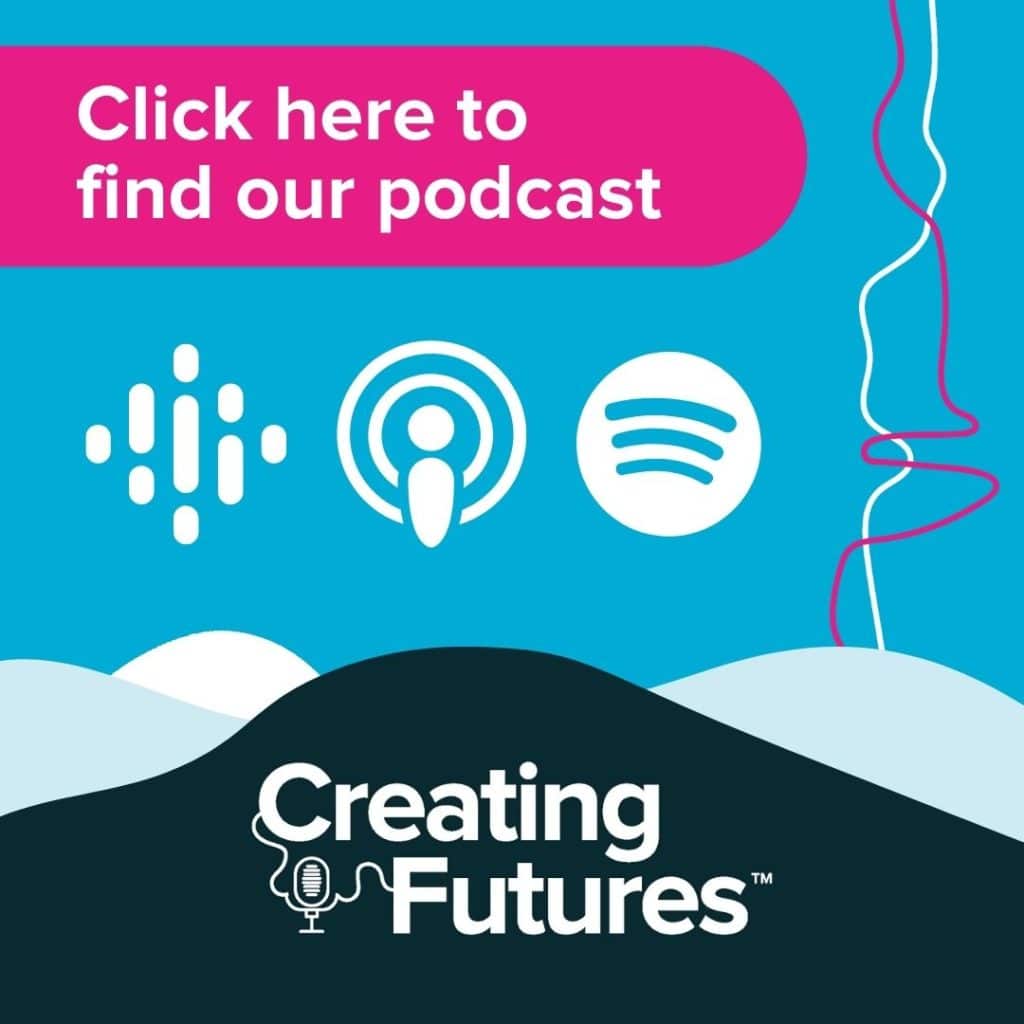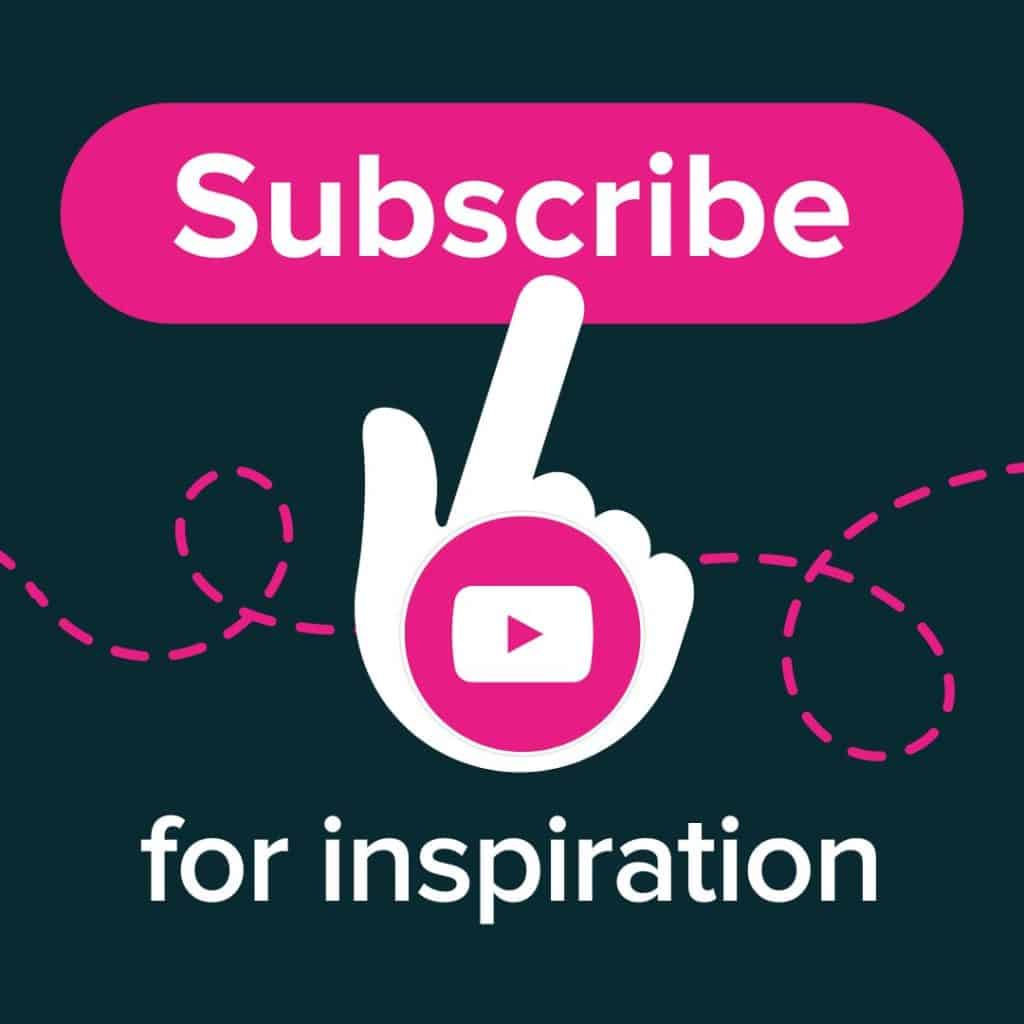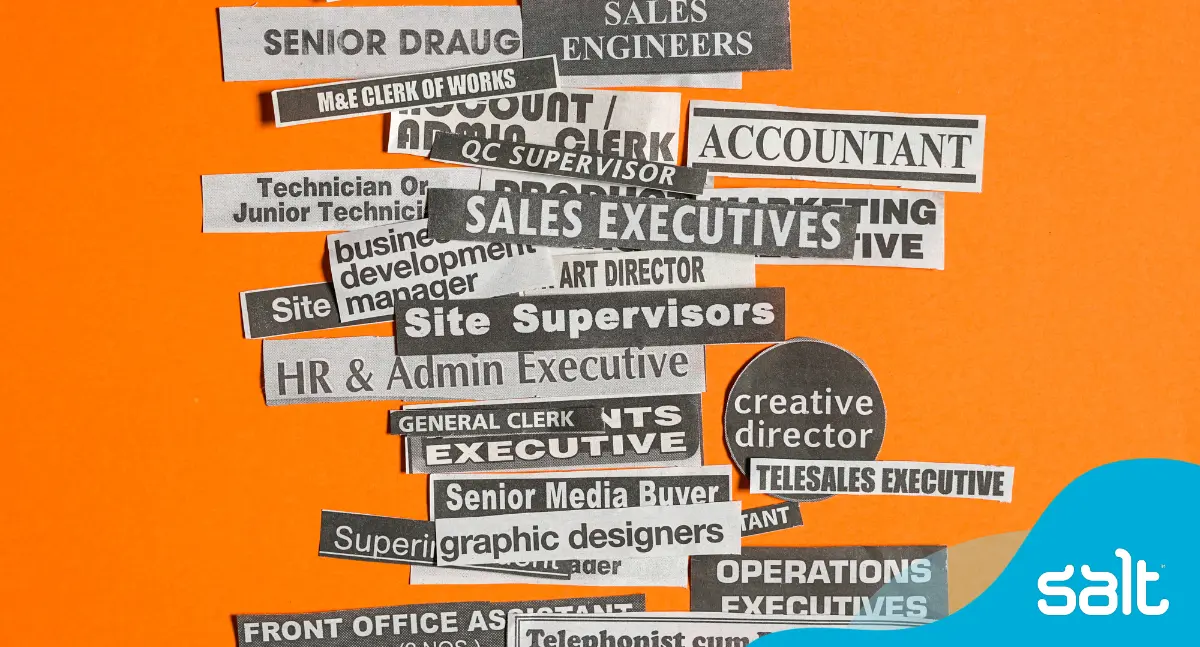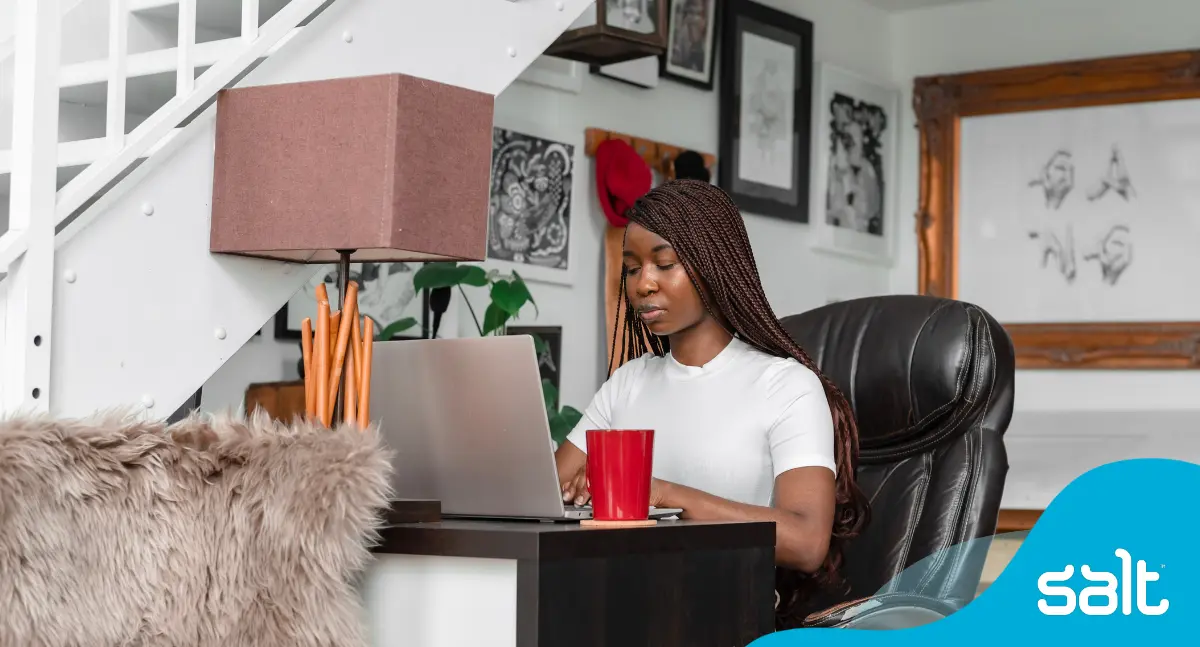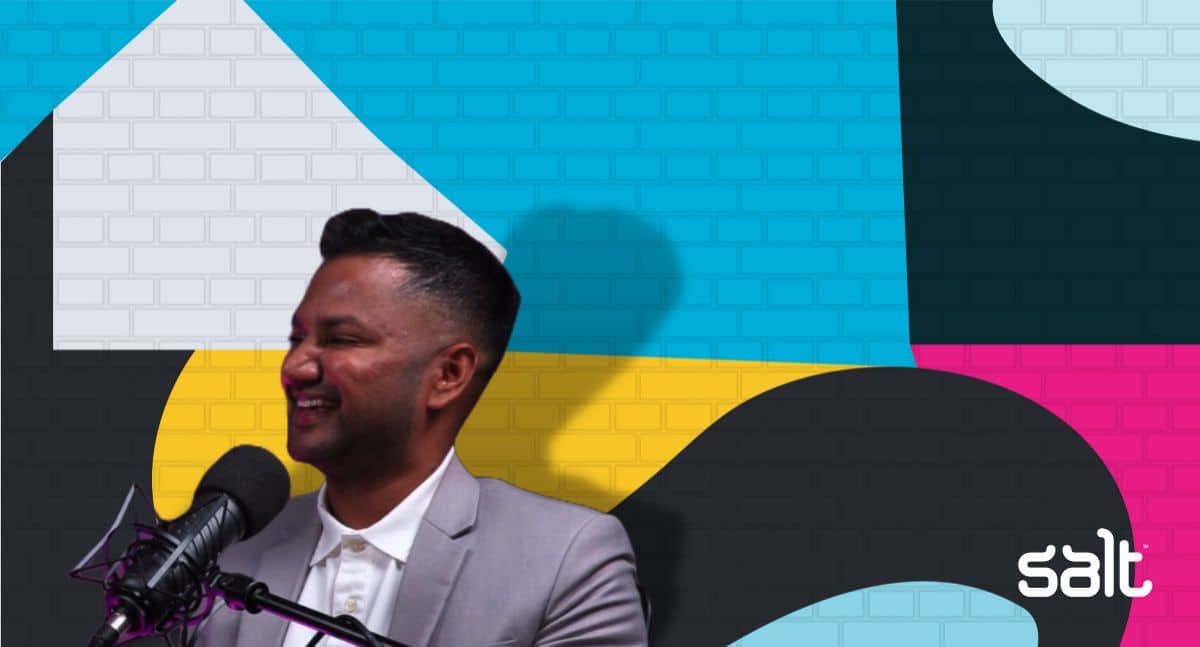
Scaling a startup from 0 to 1: Learning from OneCart’s success
One great idea can be worth millions. But to get it there takes great people, great passion and great dedication.
Wondering how to build a business that delivers? Lynton Peters, entrepreneur, founder and ex-CEO of OneCart, reveals his secrets to successfully scaling and selling a business in this Creating Futures by Salt interview. Here are the skills a founder needs to navigate challenges, embrace resilience, and turn their passion into a profit-generating business model.
Hiring? Get in touch with our expert recruitment teams near you.
AU | BE | BR | CA | DE | HK | MY | ME | NL | NZ | SG | SA | UK | USA
Introducing Lynton
My name is Lynton Peters. I’m a corporate exec, entrepreneur and investor with over 15 years’ experience in a mixture of engineering, strategic consulting and innovation both locally and internationally. I most recently founded OneCart, an on-demand grocery delivery business in South Africa, which I grew to over a thousand employees in 4 years and sold to Walmart.
How did you come up with the idea for OneCart?
The idea for OneCart came to me when I was living in Singapore. Every weekend we used to do grocery shopping after a Friday night out. We’d get groceries from one place, then wine from somewhere else, then we’d go to a farmer’s market… This took most of the morning away.
I thought to myself, how cool would it be if you could develop a product where you shop from multiple stores and get it delivered quicker than you can actually do it yourself.
Before OneCart, I was in business consulting and strategic consulting, so I was essentially on the other side of the table to founders. I’d consult other companies and startups.. This was 2016. In South Africa, you’d get your groceries delivered in five days. So feasibly, could you get it delivered in a day?
I was doing all of this market research to determine if it was feasible when I actually came across a company in the US that was trying to do something similar, and they had just raised like a few hundred million dollars. And I was like, okay, so I’m not that crazy!
How did you take the step to become a full-time founder?
That was probably one of the toughest decisions that I had to make. At the time I was actually on a partner track to be a partner in a firm. It would have been the safe choice to continue in corporate.
I decided to do it in phases.
Initially I was working on the concept at night after work until I developed a basic prototype. Then, once we were ready to launch, I decided to reduce my hours, to start spending a bit more time at the company. That gave me the ability to look for a co-founder, to begin to look for investment, and to start to do some market research.
Once I had some people working in the business and it was operational for about six months, I decided to fully take the plunge go full time as CEO.
Have the skills a founder needs changed since 2016?
There are certain things that have changed, and then there’s certain things that remain the same.
In terms of what’s changed:
- Technology has advanced
There’s been so many rapid advances in technology. To be able to build a startup in 2015 or 2016, to be a Tech founder, you may have needed to have the technical expertise or be working with a strong CTO. - Working models have changed
Normally, when you’re building a product and innovating, it’s great when everyone’s together. Now, after COVID, people have a preference to be remote and you’ve got to figure out how to do that. As a founder these days, whether you like it or not, you’re working with teams that are remote or global. Big Innovation usually happens when people are together and you have to recrate that experience virtually.
There are certain skills you’ll need as a founder that remain the same. Every company needs a visionary, an evangelist, like a Steve Jobs. There’s also a need for a certain mental resilience and toughness you definitely need because you’re going to go through so many ups and downs. It’s easy to lose faith.
Is it easier today to become a founder?
Personally, I think that the technological advancements we’re seeing could be a double-edged sword.
But, at the same time, there’s so many tools that are being developed that promote and foster collaboration. I have companies that I advise where the founders are sitting in New York working with teams in Cape Town and Europe building great products.
It comes down to the leaders and how you actually lead your team. Especially with those just coming into the workforce, they expect something different: a different kind of leader and a flatter kind of structure.
People are looking for more purpose these days, and used the right way that can be amazing.
What was your hiring strategy as you scaled your startup? How do you build a business that delivers?
OneCart grew in just 4 years to have 200 members of staff in the office and about 1000 shoppers, drivers and staff members across the country making up our distributed workforce.
The hiring strategy evolved rapidly as the company changed. In the early stages, it was really more about getting people that were versatile and could wear multiple hats. People that were passionate enough to be part of our crazy idea.
Then as we started to scale up and grow, we needed to build a core team. So, we were hiring for specific roles in tech, marketing and operations. Putting processes in place was key, as was ensuring that everyone was a cultural fit for our business. We had a set of core values in our company, and we had one main value in our business was, which was customer centricity, which everyone at every level was aligned on.
We also developed a flat structure. We wanted everyone to be able to challenge us. It wasn’t a typical corporate structure.
For me, it’s always people first. Resumes can be great on paper, but the culture and the passion you can’t teach and that’s what really drives innovation.
Hiring? Get in touch with our expert recruitment teams near you.
AU | BE | BR | CA | DE | HK | MY | ME | NL | NZ | SG | SA | UK | USA
What advice do you have for future founders?
Whatever your past experience is, whether Marketing or Engineering, it comes down to the idea and the business model.
Separate your emotions. Really analyze your idea and ask yourself: does this business have potential?
- Will this idea generate returns?
- How big is the market for this business?
- How much of the market do you want to capture?
- Who are the international players you can benchmark against?
What is next for Lynton Peters?
I stepped down as CEO in February 2023 and I actually just needed to take a break after 5 years of intense building. Since then, I spent the first year of my son’s life with him, which was amazing.
I’ve built up over 10 years’ experience in corporate and then spent more than 5 years founding and building a successful startup from 0 to exit. Through this, I have worked in a broad range of sectors from engineering, consulting, innovation, entrepreneurship and investment.
As I don’t necessarily have my next big idea at the moment – I want to contribute to a large organization, preferably global where I can utilize my unique skillset.
So now I’m looking to find places where I have the ability to do that.
Hiring? Salt connects you to outstanding top talent worldwide
If you’re interested in hearing about how Salt’s top talent recruitment experts around the world can help with your hiring right now, get in touch. Click below to contact the closest Salt team to you!
- Australia
- Canada
- Belgium
- Europe
- Hong Kong
- Malaysia
- Middle East and North Africa
- Netherlands
- New Zealand
- Singapore
- South Africa
- United Kingdom
- United States
Keep up with Salt’s top talent job market insights and hiring advice! You can keep in the loop by following us on. LinkedIn, YouTube, Facebook, Instagram, and Spotify.
